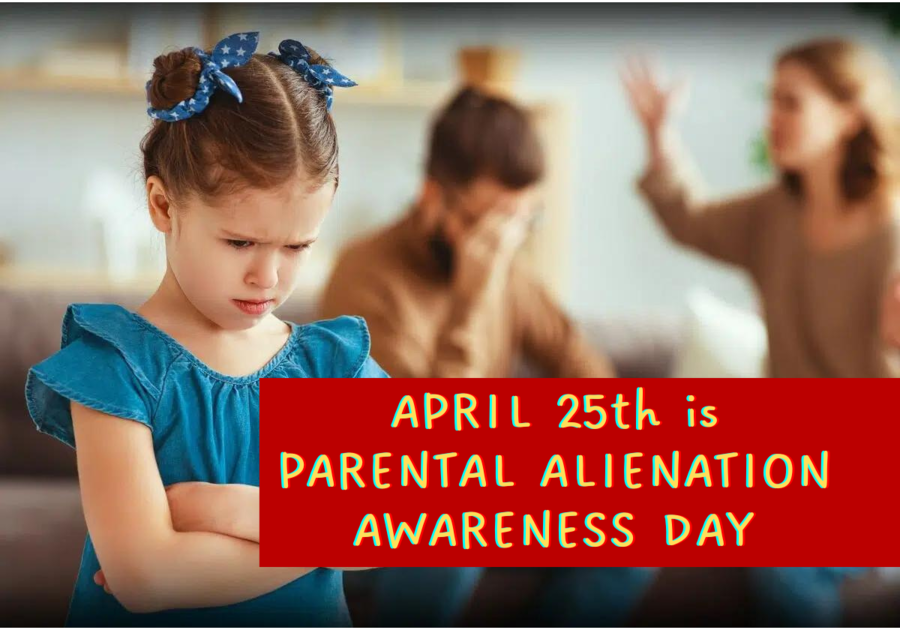What is Parental Alienation?
Parental Alienation is a type of child abuse in which one parent manipulates or coerces a child into rejecting the other parent. This behavior often occurs in the context of divorce or separation, where one parent may attempt to undermine the child's relationship with the other parent through various means, such as denigrating the other parent, limiting contact, or creating false narratives about them. The ultimate goal of parental alienation is to estrange the child from the targeted parent, resulting in emotional harm to the child and damaged family relationships. It is considered a form of psychological abuse and can have long-lasting effects on the child's well-being and development.
Alienated children are often caught in a torrent of multiple post-separation family dynamics. Although most children can endure a high-conflict divorce with resilience, very few are able to avoid the powerful force of parental alienation where one parent actively—or sometimes unwittingly—seeks to separate the other parent from their children. The powerful alienation process, in effect, severs the relationship with the targeted parent and serves to align the children’s loyalty to the alienating parent.
Let that sink in: When the children show any love, interest, or affection to the targeted parent, they fundamentally feel as though they’re being disloyal and unloving to the alienating parent. Likewise, when the children display an attitude of hate and disrespect while resisting and refusing contact with the targeted parent, they feel loyal and loving to the alienating parent. Most children simply can’t withstand nor extricate themselves from this deep and powerful attachment dynamic without intervention.
A way to understand what’s happening to such children is to think of parental alienation as a type of psychological tumor that impacts the cognitive function in their brains and the emotional wiring to their hearts. It’s invasive and at risk of growing and metastasizing if ignored and left untreated. While multiple post-separation dynamics can contribute to its inception, the toxic attachment process that requires the children to maintain a loyalty contract to the alienating parent feeds it. And, as it grows, this tumor begins to negatively impact functions in the children’s heads and hearts.
How to deal with someone who has no moral compass?
Words ….. words ….. words ….. Our lives are filled with words.
But these words have stuck in my mind: How do you deal with — or protect yourself or others — from someone who has no moral compass?
During our years of coping with parental alienation, my husband and I threw around so many words: child abuse, narcissism, parental alienation, pathological liar … but did it really come down to these three words: no moral compass?
Our alienating parent was a victim of child abuse, at the hands of her own father. Is that what caused her to abuse her own children, by alienating them from their father?
Our alienating parent’s behavior is a classic example of a narcissist. Could the parental alienation be so easily explained?
Our alienating parent has demonstrated, over a 40-year time span, that she will do whatever it takes to alienate her children from their father.
Our alienating parent has proven, time and time again, that she is a pathological liar.
But then, during a conversation with a bereavement counselor after my husband’s death, she asked me: how can you protect yourself from a person who has no moral compass?
Unfortunately, it is a fact of life: there are people out there who have no idea what is right from wrong. They have no moral compass.
Is it right to keep children from a parent who loves them and cares for them? A parent who has not given any reason why they should be excluded from their children’s lives? Or is it wrong? Should the alienating parent — at some point — feel: that this is not right? I should not be doing this. What I am doing is wrong.
Our alienating parent and the child she raised — who subsequently alienated her children from their grandfather — can certainly be considered individuals who don’t know right from wrong. Lying on tax returns; filing medical claims on an ex-husband’s medical insurance years after the divorce; attempting to collect child support for daycare, when daycare for the children is paid for by the County; lying about medical issues; lying under oath during court proceedings; going to jail for theft in office …. the list goes on and on.
Did my husband’s daughter know right from wrong when she walked into his hospice room, in the middle of the night, when he was unable to call for help — even after she knew he did not want to see her? Probably not; otherwise, she never would have subjected him to that humiliation. He was dying. He made it clear he did not want to see her. Anyone with any moral compass would have respected a dying man’s wishes.
But, in our case, we had the alienating parent being relentless in instructing her child to go against her father’s wishes, even as he lay dying. Was that right …. or was it wrong? Was it the result of the child abuse she suffered? Was it because she’s an obvious narcissist? Was it because she’s an alienating parent?
Or was it because she has no moral compass?



